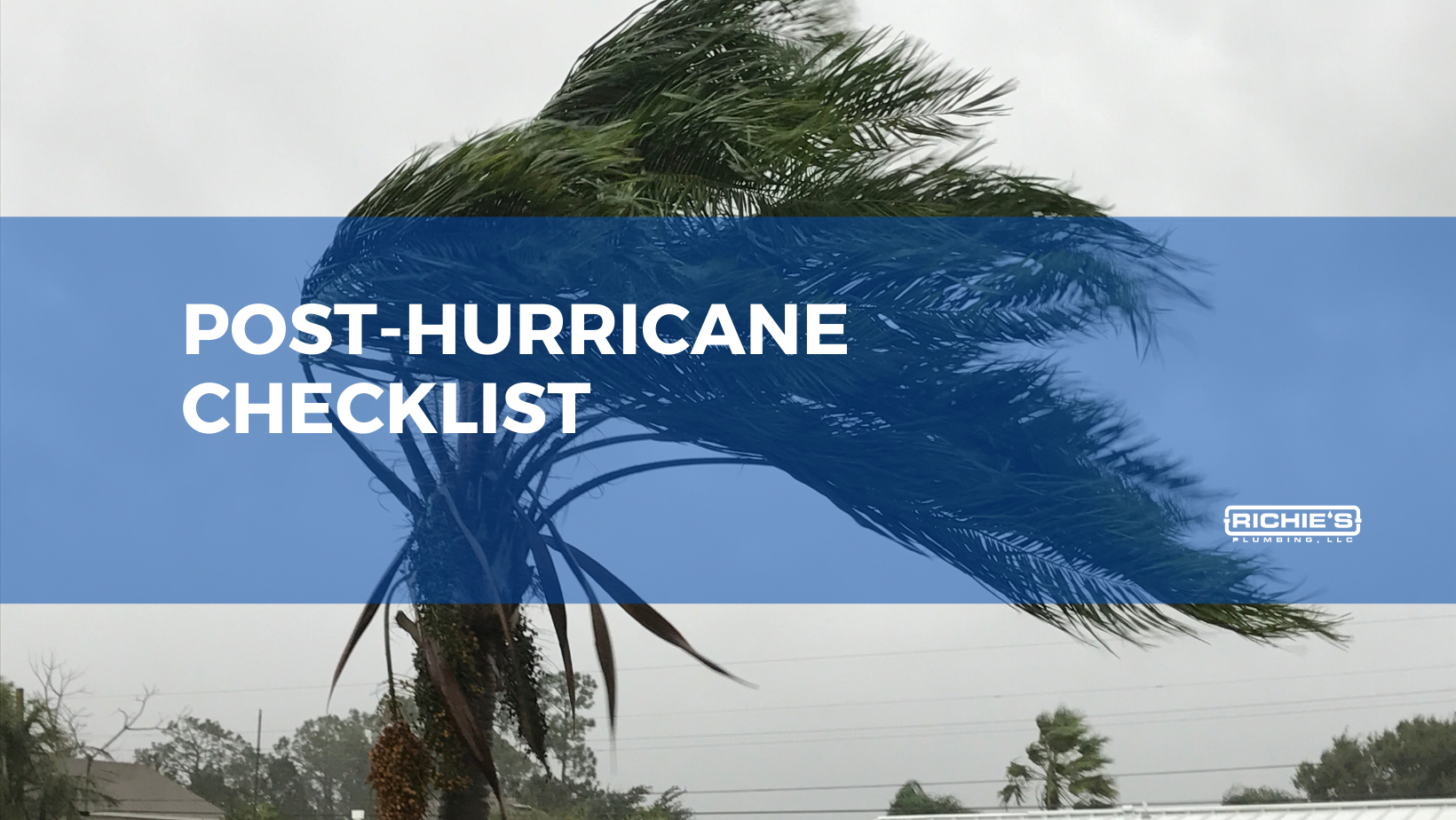Most of Southern Louisiana has experienced damage from Hurricane Ida, some catastrophic and others minor. Louisiana people are resilient and we will rebuild as a stronger community.
When you return to your home or business and take a closer look inside, you may realize that you have problems with your plumbing as well. Here are some plumbing items to check after a destructive hurricane.
First Inspect Your Structure
Look for:
Weakened walls
Roof damage
Foundation damage
Chimney cracks
Sagging floors
Cracks in walls
Plumbing pipes that have been displaced
Windows and doors that have shifted alignment
Look for evidence as to how the storm could have damaged the structural support system. For example, a stuck closet door and a ceiling crack could indicate that the hurricane caused the frame to shift. If there is more structural load in one area of your house, you could have problems with the underlying foundation.
Gas leaks
Gas systems need to be airtight, and it’s possible to get a leak after a hurricane’s wind, rain, and storm surge. This could be a big problem because even the smallest spark can cause an explosion. Don’t try to troubleshoot a gas leak yourself, and immediately report any problems to your utility company. When checking your property, use a battery-powered flashlight, and turn it on outdoors because even the spark of turning on a flashlight could be enough to ignite a gas leak.
Sewer line
When a heavy storm or a hurricane comes through it’s best to check your sewer line when you get back to your home. The sewer line should be checked because it’s located in the ground and a hurricane can cause the trees to become uprooted affecting the main sewer line. Walk around your house and inspect the yard for damage. As you’re scoping out the damage notice if the sewer line is detached or if it got ruptured during the storm. Another way to tell is if your toilets are having a hard time flushing or if there is sewage backed up into your bathroom shower.
Water leaks
It’s common to have leaks in your home. Check for damage to your pipes such as cracking or water leak marks inside of your home. Your pipes most likely were under extreme stress during the hurricane. Any water leaks that are found in your home should be inspected by a professional.
Prepare for Gross Stuff
There can be a surprising amount of damage after a hurricane, and cleaning up your property can mean you’ll encounter some unpleasant surprises. There could be unwanted wildlife in and around your home, and floodwaters can bring gators, snakes, or other creepy crawlies into your neighborhood. You could also find that sewage backed up through your plumbing into your home. It’s also important to remember that floodwaters can be quite toxic, carrying bacteria, pathogens, or chemicals. The CDC cautions about direct contact with floodwaters could cause skin rashes, GI illnesses, or wound infections.
Take precautions during cleanup and inspection. If sewage is involved, wear rubber boots, rubber gloves, and goggles. Disinfect anything that’s had contact with floodwaters. Thoroughly wash hands and any skin that’s touched floodwaters to stop bacterial spread.
Remember: Don’t go home until it’s safe. Follow designated roadways. Don’t enter a building if it could collapse. Document property damage for insurance companies.
Our team at Richie’s Plumbing is here to answer any questions or assist in your plumbing repairs. Contact us to schedule a service appointment.


